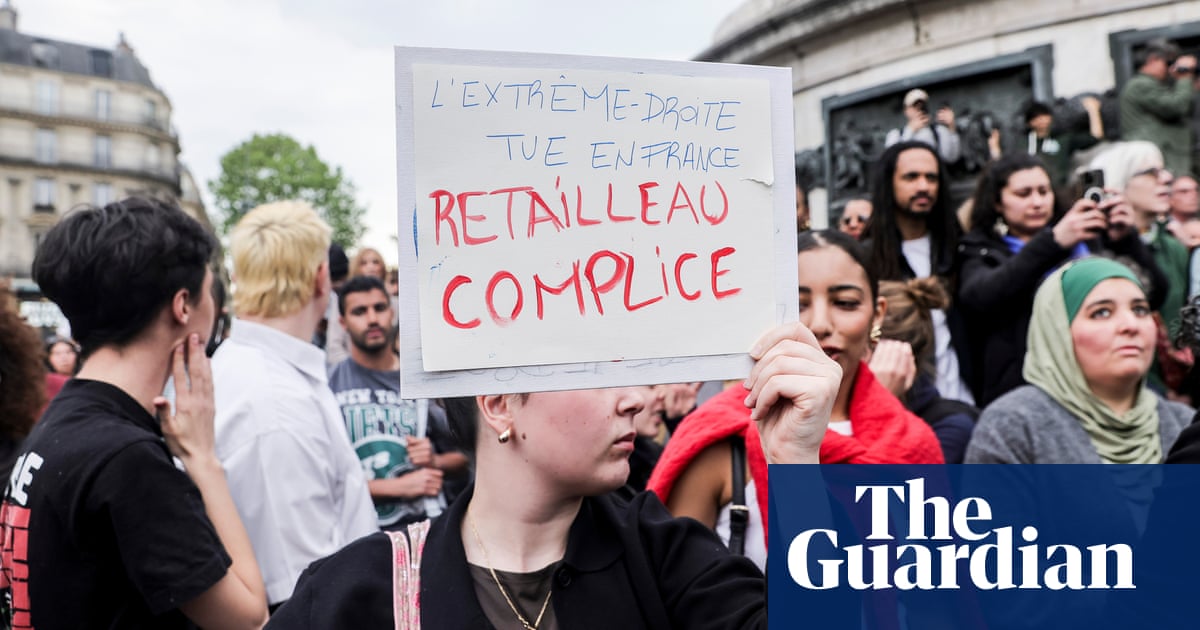French Muslim leaders have said more must be done to counter anti-Muslim hatred in France after a man was arrested on suspicion of stabbing a young worshipper to death inside a mosque in a southern village.
Olivier A, 21, a French national born in Lyon, surrendered to police in Italy on Sunday after three days on the run, French prosecutors announced on Monday morning.
He is suspected of killing Aboubakar Cissé, 22, a Malian man who had trained in France as a carpenter and worked as a volunteer at the mosque in La Grand-Combe in south-eastern France.
Olivier A is alleged to have entered the mosque on Friday morning and stabbed Cissé dozens of times. He is alleged to have filmed his victim in agony with a mobile phone. In the footage a man can be heard congratulating himself, saying “I did it” and shouting insults at Allah.
Cissé had gone to the mosque alone early on Friday morning to pray. His body was discovered when worshippers began arriving later that morning for prayers.
The incident in the village in provincial France has caused shock, prompting the president, Emmanuel Macron, to say there is no place for religious hate in French society and the prime minister, François Bayrou, to denounce an “Islamophobic” crime.
Mohammed Moussaoui, the head of the French Muslim council, toldFrance Inforadio: “A great majority of Muslims in France feel that anti-Muslim hatred is not taken as seriously as other hate.”
He said Muslims were worried and concerned about the current climate and asked why an anti-terrorism inquiry had not been opened into the case.
Abdelkrim Grini, the state prosecutor in the southern city of Alès, told BFMTV on Monday that the alleged attacker had gone to an Italian police station near Florence at about 11.30pm local time (2230 BST) on Sunday night.
He said: “We knew he had left France … It was only a matter of time before we caught him. The suspect had no option but to hand himself in.”
Grini said an “anti-Muslim or Islamophobic motive” was the main lead in the investigation, given the nature of the crime and the fact a worshipper had been targeted while praying inside a mosque.
He said there were other elements in the investigation that could suggest the suspect had a “fascination with death” and had wanted to kill and “be known as a serial killer”.
Ibrahim Cissé, the cousin of Aboubakar Cissé, toldLe Parisienon Sunday: “My cousin was targeted because he was Muslim.”
He said he considered the crime to be terrorism: “It was premeditated, the person knowingly came to kill someone in a mosque … For us, Aboubakar is the victim of a terrorist attack.”
The suspect is understood to have been unemployed and lived in La Grande-Combe. Grini said: “He was someone who had remained under the radar of the justice system and the police.”
In La Grand-Combe, more than 1,000 people gathered on Sunday for a silent march in memory of the victim, setting out from the Khadidja mosque, where the stabbing occurred, to the town hall.
Abdallah Zekri, the rector of a Nîmes mosque, denounced an Islamophobic climate in France. Several hundred people also gathered in Paris on Sunday to protest against Islamophobia.
Macron wrote on social media on Sunday to express support to the family and “to our Muslim compatriots”. He posted on X: “Racism and hatred based on religion will never have a place in France.”
The French government has ordered police to tighten security at mosques around the country.
